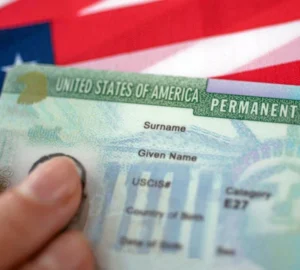
“U.S. Green Card: A Gateway to Permanent Residency – Everything You Need to Know“
A U.S. Green Card is a legal document issued by the U.S. government that provides an individual with lawful permanent resident (LPR) status. Unlike temporary visas, which have expiration dates and restrictions, a Green Card allows the holder to reside in the U.S. without time limitations. While Green Card holders are not U.S. citizens, they enjoy many of the same privileges, such as the ability to work for any employer, own property, and access certain social benefits. However, they are not eligible to vote in federal elections and must maintain their residency status to avoid the risk of deportation.
Types of U.S. Green Cards
There are multiple pathways to obtaining a U.S. Green Card, each designed to accommodate different immigration needs. The most common types include family-based Green Cards, employment-based Green Cards, diversity lottery Green Cards, and humanitarian Green Cards.
The family-based Green Card is one of the most popular routes, allowing individuals to immigrate to the U.S. through close relatives who are either U.S. citizens or lawful permanent residents. Immediate relatives, such as spouses, parents, and unmarried children under 21, have the highest priority and the shortest waiting times. Other family relationships, such as siblings or married children, may also qualify, but the process can take significantly longer due to annual visa caps.
The employment-based Green Card is another widely used category, granted to foreign workers with specialized skills, extraordinary abilities, or investment capital. This category is divided into different preference levels, with priority given to individuals with advanced degrees, multinational executives, and highly skilled professionals. Certain employment-based Green Cards require employer sponsorship, while others, such as the EB-5 investor visa, allow applicants to qualify by making significant financial investments in U.S. businesses.
For individuals from countries with historically low immigration rates to the U.S., the Diversity Visa Lottery Program provides a unique opportunity to obtain a Green Card. Each year, the U.S. government randomly selects 50,000 applicants through a lottery system, allowing them to apply for permanent residency. This program is highly competitive and requires applicants to meet certain education or work experience criteria.
The U.S. also grants Green Cards on humanitarian grounds to refugees, asylees, and victims of human trafficking or abuse. These applicants must demonstrate that returning to their home country would pose a significant risk to their safety. Special provisions also exist for individuals under certain U.S. government programs, such as the Cuban Adjustment Act and the Special Immigrant Juvenile program.
How to Apply for a U.S. Green Card
The application process for a U.S. Green Card varies depending on the category under which an individual is applying. However, the general process includes filing an immigrant petition, submitting supporting documents, undergoing a medical examination, and attending an interview at a U.S. consulate or immigration office. For individuals already in the U.S. on a different visa, the process may involve adjustment of status, whereas those applying from abroad must go through consular processing.
The waiting period for Green Card approval depends on the category, applicant’s country of origin, and the annual visa quotas set by U.S. immigration authorities. Family-sponsored and employment-based applicants from countries with high demand, such as India and China, often face long backlogs. In contrast, applicants under the Diversity Visa Lottery Program generally have a shorter timeline but must meet strict deadlines.
Conclusion
The U.S. Green Card is a valuable opportunity for individuals seeking permanent residency in the United States. Whether obtained through family sponsorship, employment, the Diversity Visa Lottery, or humanitarian programs, it provides numerous benefits and serves as a gateway to U.S. citizenship. While the application process can be complex and time-consuming, understanding the requirements and maintaining compliance with immigration laws ensures a smooth transition to life in the U.S. For those aspiring to call America home, the Green Card is a crucial step in turning that dream into reality.
